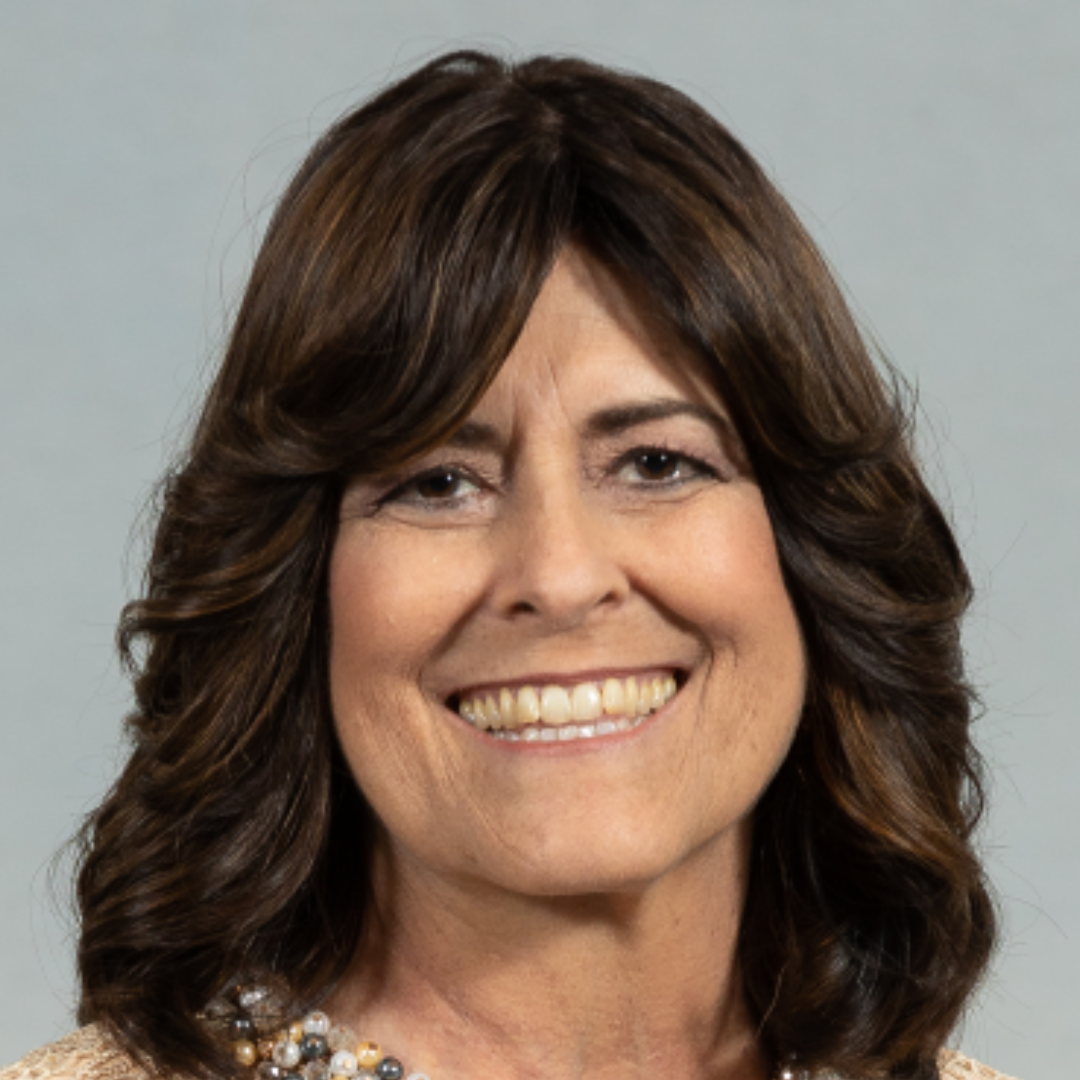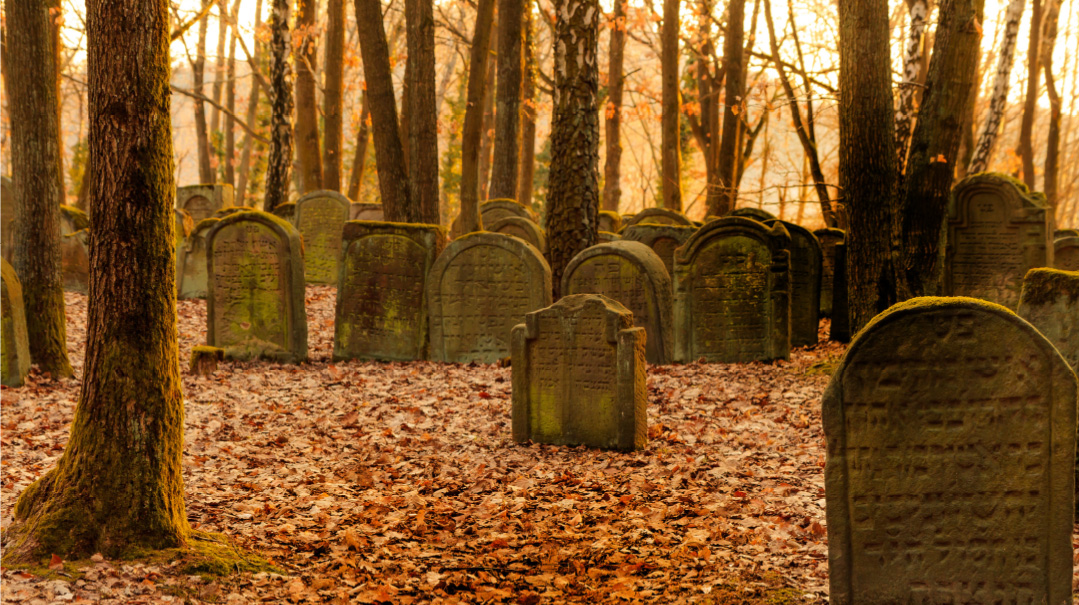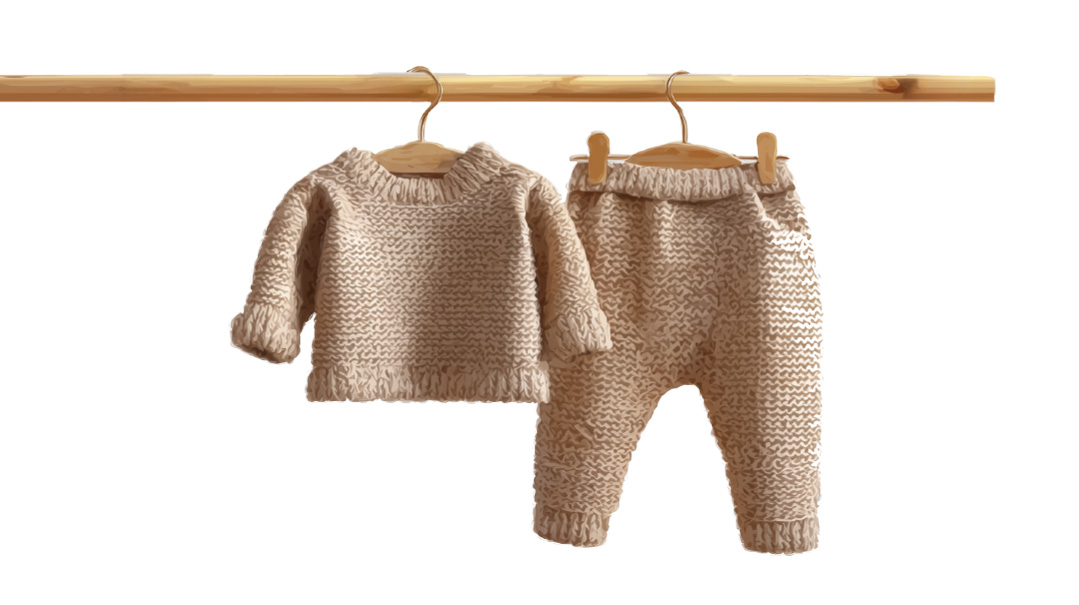Belarus Diary

Finding past history and present connection in Pinsk

Pitch-black. That’s all we can see when we get out of the van. The driver leaves the headlights on, but once we walk beyond the lights' beams, we are enveloped in darkness again.
I grab Masha’s arm, and we gingerly begin to pad through the wet grass. We pass a stone, crookedly planted into the ground, and shine a phone light on it. Yes, there is a Magen David on it. We are in the Jewish cemetery.
We walk further into the darkness, using the thin white light of the phone as our guide. Finally, we see the outline of a hut. The sign on the outside confirms it: We have arrived at the grave of the holy Chofetz Chaim.
Rav Yisrael Meir Kagan, the greatest rabbi of first part of the 20th century — how could I leave Belarus without davening at his grave?
Eight years ago, my daughter Chana flew from Israel to Belarus to serve as a counselor for a year in the girls’ Jewish school in the city of Pinsk. She loved it so much that she regularly returned to spend the holidays there. She ended up marrying a boy who had learned at a yeshivah in Odessa. He was comfortable both with the Russian language and with working closely with Jews who didn’t know much about their heritage. My daughter and her husband were asked to take up residence in the girls’ school. She now serves as the housemother, and her husband teaches at the boys’ school and learns in the kollel.
I was planning a trip to visit Chana and spend time with my granddaughter, but then Russia invaded Ukraine. Suddenly, Belarus became a country stuck between the two warring nations. It seemed dangerously out of reach.
“Come back to Israel,” I told Chana daily. “It’s too dangerous there.” I had horrible visions of the Jews who were left in Europe before World War II.
Then came the attacks in Israel — first in Bnei Brak, then Elad. “Ima, it’s dangerous in Israel, too,” my daughter said. “Come visit me in Belarus.”
Life for Jews is precarious everywhere, but the time was finally right to visit my daughter and her family. And Belarus.
ON a Wednesday morning in the spring, I leave my home in Beit Shemesh for the airport in Tel Aviv. It will take me almost a full day before I arrive in Pinsk. Because of the war in Ukraine, I must first fly to Vilna and then cross the two border points from Lithuania into Belarus.
In Lithuania, I pass a chiseled stone in front of the airport proclaiming that we have arrived in Vilna. I think of the Vilna Gaon, the 18th-century scholar and kabbalist. I think of Avraham ben Avraham, the convert who sacrificed his life to remain a Jew. I think of all the Torah that flourished in Vilna until the time of Rav Elchanan Wasserman, who was brutally murdered by Lithuanian collaborators.
On the road, we pass miles and miles of trucks. They are waiting to get into Belarus, which is an ally of Russia. The trucks must clear inspection from Lithuanian customs officers, who are trying to prevent trucks from bringing sanctioned goods into Russia via Belarus.
Many products are cheap in Belarus. A Lithuanian might enter Belarus, fill his car with the inexpensive gas that Belarus receives from Russia, buy a few packs of cigarettes, and return to Lithuania. He then sells the gas and the cigarettes, repeating the process the following week.
After 20 hours in transit, at three a.m. Thursday morning, I arrive at my daughter’s apartment in Pinsk.
There are no signs of war in Pinsk. In fact, it’s peaceful. The shelves in the grocery store are full. My daughter’s house smells like a pleasant cleanser. Something is baking in her oven.
Pinsk has been a haven for Jews since the outbreak of the war. One story I hear is about a community of chassidim from Kiev, who were forced to leave Ukraine. They were supposed to board two buses on a Friday morning and arrive in Pinsk before Shabbos. But things didn’t go as planned.
One of the Ukrainian bus drivers drank too much and was in no shape to drive. The chassidim had to wait. And wait. And wait. The chassidim consulted with their Rebbe, who lives in Eretz Yisrael, and he firmly commanded them to board the buses on Friday night. Throughout their perilous journey out of Ukraine, their Rebbe and Rav Moshe Fhima, the community leader from Pinsk, were in contact by phone with the drivers. Yes, on Shabbos.
Rav Moshe Fhima, who established the boys’ and the girls’ schools in Pinsk, has a reputation for helping his fellow Yidden in times of need. In 2020, during the Covid outbreak, hundreds of Breslov chassidim came to the border of Ukraine on Rosh Hashanah, hoping to get to Uman. Because of Covid, they were denied entry into the country. The group of men, women, and children had nowhere to go and were sleeping in the rain and mud at the border. Rav Fhima found a way to shelter them all. Chana told me there was not a mattress to be found in all of Pinsk because Rav Fhima had bought or borrowed them all to provide for the Breslov “refugees.”
I later hear about another member of the incredible Pinsk community. He once saw some boys from the Jewish school eating in a Kentucky Fried Chicken restaurant. His heart broke. But he refused to sit idly by. He found a sponsor and opened a kosher KFC, complete with schnitzel sandwiches.
Every morning, I schmooze over bagels with my daughter — we call it “Bagel Therapy.” Although there are many products on the kosher list in Belarus, most bread cannot be eaten; my daughter makes bagels, challah, Israeli “laffot,” and cakes from scratch.
Pinsk is a small quaint city — clean and quiet. There is not much to do here, which may explain why a yeshivah for Israeli boys was established in the town. I meet a few of the bochurim and they tell me how much they love it. “Ein al Pinsk! — there’s nothing like Pinsk,” says a red-headed bochur.
We take taxis around the city. For the average cost of two dollars, we go to the few entertainment spots: bowling, a jamboree for children, a walk along the river, a quaint outdoor pedestrian mall with few tourists. My trip overlaps with Lag B’Omer; to celebrate, we go to a lake for a barbecue with the boys’ school.
My granddaughter is only three years old, but she speaks Russian, English, and Hebrew. She attends the local Bais Yaakov. The children start the school day with a Russian teacher who does crafts and runs playtime. Later, a Jewish teacher comes in for circle time. She teaches the children songs, and they learn about the cycle of the Jewish year.
The Russian girls’ school was started by Rav Fhima in 2005. Before the war, there were 26,000 Jews in Pinsk. Now Rav Fhima must send out emissaries to find Jewish children, all of whom grow up in nonobservant homes. The students come from places with familiar names: Minsk, Lida, even Kyiv. They are difficult to find, but each Jewish spark is worth the search.
Chana takes me on a tour of her school. The Russians are very organized: Every girl has her own bed, desk, and drawers. Chana points out to me that on each desk there are small bits of food. These girls come from poor families, and even though they have plenty of meals and snacks at the school, they tend to save pieces of leftovers. Sometimes Chana will leave cake out for the girls. “Food brings them closer to Yiddishkeit,” she tells me.
Chana’s students come from difficult backgrounds. One girl’s father was jailed for murder. Many fathers have disappeared. The mother-daughter relationships are just as strained. The women in Belarus are paid to give birth, so they have babies — but then what? Some mothers are in touch with the girls; others are not.
As Shabbos descends on Pinsk, the schoolgirls come into Chana’s apartment and take their seats. They begin to sing Lecha Dodi, and I get chills. These girls who barely know what being Jewish means are singing the same Lecha Dodi that we sing in shuls all over the world.
For Shabbos meals, a designated family always sits with the schoolgirls. This Shabbos, it’s a different family’s turn, but my daughter invites a few girls up to her apartment after lunch. The little ones are very huggable. They called me “Babushka” — grandma. The older girls are not completely committed to Shabbos observance, so they struggle. There are seminary girls visiting who coordinate activities and give sweets, anything to keep the girls away from their phones.
I spend Seudah Shlishis with the girls. After the meal, my daughter brings down games and everyone gets involved in cards or Rummikub. There’s a sense of togetherness, of belonging.
As Shabbos departs, my little granddaughter sings, “Shabbos is going away…” I tear up for a little girl’s connection to Shabbos and for the big girls’ tenuous connection to Shabbos.
After a week, it’s time to go home. My granddaughter grabs on to me, trying to keep me in Belarus. I remind her that we will talk on the phone, and maybe, just maybe, Savta will come back to visit.
I won’t be returning to Israel alone — with me in the van is a Ukrainian girl named Masha, who is from Kyiv. Her parents remained there, but she is making aliyah. We will be on the same flight home.
As we travel on the road, I look down at my map of Belarus. I identify all the towns that once were filled with shtreimlach and the sounds of Torah learning:
Valozyn,
Lida,
Berdichev,
Baranovitch,
Minsk,
Grodno,
Brisk,
Slonim.
And finally, we reach Radin. In the dark, Masha and I feel our way to the grave of the holy Chofetz Chaim.
I daven for every friend and relative or stranger that I can remember who needs a yeshuah.
I daven for Am Yisrael. I daven for the Jews who are far away — both geographically and spiritually.
Then I turn around to make my way back to the van. I am on my way home to Eretz Yisrael, where Jews and Torah, against all odds, flourish.
(Originally featured in Family First, Issue 834)
Oops! We could not locate your form.







